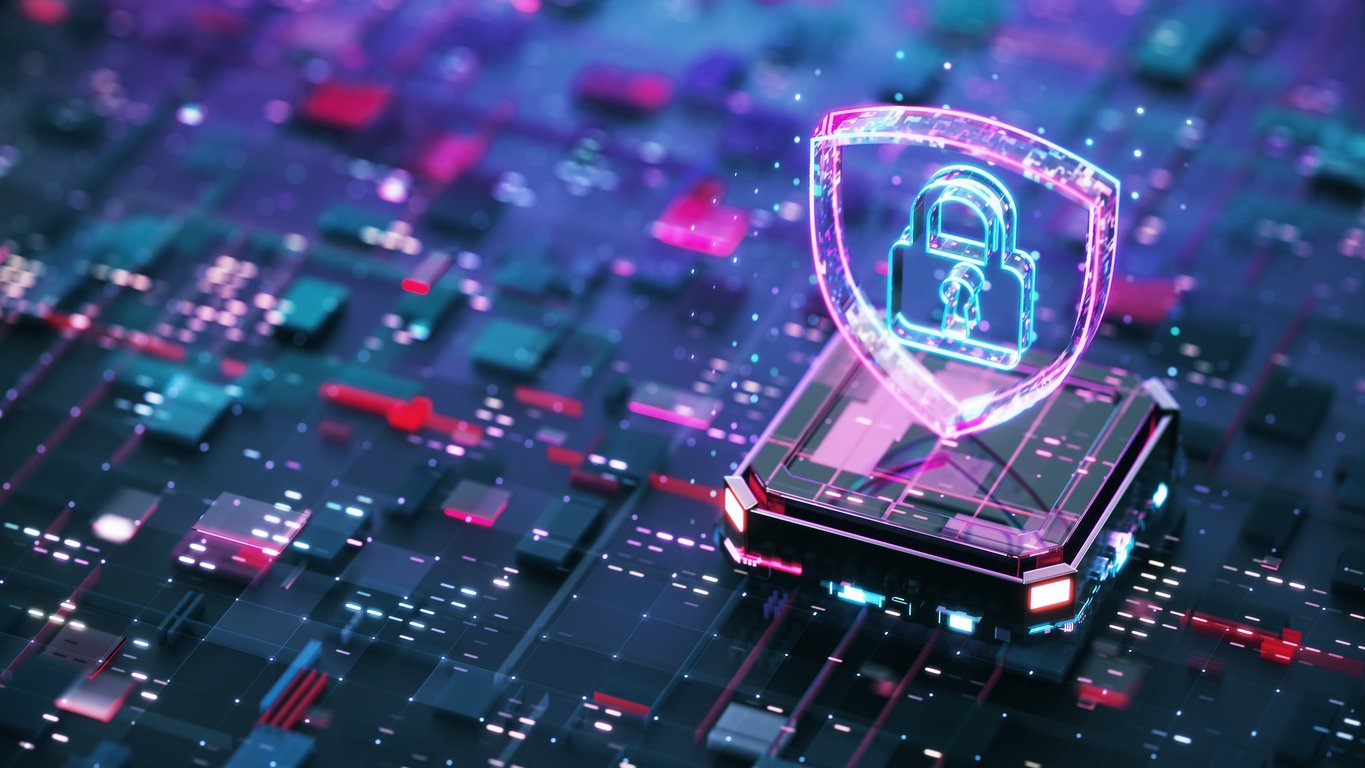The Internet Runs on Encryption And Quantum Computers Could Crack It

Every time you send a message, check your bank account, or buy something online, you’re relying on encryption to keep your information safe. Encryption works like a digital lock, turning readable data into a secret code that only the intended recipient can unlock. But the type of encryption we use today depends on math problems that are hard, really hard, for regular computers to solve.
Quantum computers, though, play by a different set of rules. They’re not just faster, they can process certain calculations in a fundamentally different way. Researchers say that if a powerful enough quantum computer were built, it could solve the mathematical puzzles behind encryption much faster than traditional machines, effectively unlocking protected data in minutes instead of centuries. That possibility is why experts say quantum computing could, in theory, break the internet or at least the internet as we currently know it.
Quantum Computers Use Qubits And They’re Nothing Like Regular Bits
To understand how quantum computers could crack modern encryption, you need to know how different they are from the computers we use every day. Regular computers use bits, which are either 0 or 1. But quantum computers use qubits, which can be 0, 1, or both at the same time thanks to a weird principle called superposition.
This ability allows quantum computers to process many possibilities at once, giving them a huge head start on problems that would take classical computers thousands of years. Experts explain that this quantum parallelism is what makes the idea of breaking encryption possible. When applied to tasks like factoring huge numbers, a core part of many encryption methods, a quantum computer could find shortcuts that let it solve the puzzle far faster than any machine we currently have. That’s the scary part: it’s not just speed, it’s a whole new way of computing.
Shor’s Algorithm Is the Key to the Quantum Threat
Quantum computers don’t just work faster by default. They rely on specially designed algorithms that make use of quantum properties. One of the most famous is Shor’s Algorithm, which is designed to factor large numbers efficiently, something that underpins the security of RSA encryption, used all over the internet.
In theory, if a quantum computer could run Shor’s Algorithm on a large enough scale, it could unravel the encryption protecting everything from your emails to your credit card info. While we’re not quite there yet, scientists already know the math works. The challenge now is building a quantum machine powerful enough to run it on the kinds of numbers used in real-world encryption. It’s like having the recipe for a bomb but not having the materials to build it yet.
We’re Not at Risk Just Yet But That Could Change Fast
Right now, the quantum computers we have are still in their early stages. They’re fascinating, powerful in theory, but limited by noise, instability, and a lack of scale. Today’s quantum machines can’t yet break modern encryption. But researchers warn that progress is accelerating, and the day a quantum computer crosses that threshold could come sooner than expected.
The real concern is what experts call “harvest now, decrypt later.” Hackers or bad actors might already be storing encrypted data with the hope of breaking it in the future once the right quantum tools exist. That’s why the conversation about quantum risk isn’t just hypothetical. It’s about preparing for a time when today’s secrets could be tomorrow’s open books. Governments and tech companies are already working on solutions, but the race is on.
Post-Quantum Cryptography Is Already in the Works
Fortunately, scientists and engineers aren’t just sitting around waiting for the internet to collapse. They’re actively developing new encryption methods designed to resist quantum attacks. This new field is called post-quantum cryptography, and it aims to create digital locks that even quantum computers can’t pick.
Many of these quantum-resistant algorithms rely on math problems that don’t have known shortcuts using quantum principles. Some are being tested right now, and agencies like the U.S. National Institute of Standards and Technology (NIST) are working to standardize them for global use. While there’s still a lot of work to do, this field gives hope that we can stay one step ahead of quantum threats — and build a future where even the most advanced computers can’t crash our digital world.
Some Systems Are Already Quantum-Safe But Most Are Not

A few highly secure systems, especially those used by governments and defense agencies, are already testing or using quantum-resistant encryption. But the vast majority of the internet — including banking systems, email services, and social platforms still runs on traditional encryption that quantum computers could eventually break.
Cybersecurity experts stress that transitioning to quantum-safe infrastructure won’t happen overnight. It will take years of coordination, updates, and public adoption. But the earlier we start, the better. Waiting until quantum computers are already capable of cracking current systems would put massive amounts of private data at risk. The clock is ticking, and the digital world will need to evolve before the hardware does.
Quantum Computers Won’t Break Everything But They Could Break What Matters Most
Not every piece of online data is at risk from quantum computers. Many files, like public blogs, shared photos, or memes, aren’t protected by strong encryption in the first place. But the data that really matters, bank records, health information, legal contracts, and state secrets relies on encryption to stay secure.
Quantum computing wouldn’t destroy the internet entirely, but it could undermine the trust that keeps people and systems connected. Financial markets, medical databases, and national defense platforms could all be exposed if encryption standards aren’t updated in time. Security experts are less worried about social media passwords and more concerned about the structural systems that underpin modern life. The threat is targeted, but the ripple effects could be massive.
China, the US, and Big Tech Are in a Quantum Arms Race
Quantum computing isn’t just a research topic. It’s become a global competition involving nations and tech giants racing to build the first practical, scalable quantum machine. Countries like the United States and China have invested billions in quantum research, seeing it as both a scientific breakthrough and a strategic asset.
Industry leaders like Google, IBM, and Microsoft are also deep into quantum development, hoping to lead in this next wave of computing. For governments, quantum technology isn’t just about faster processors — it’s about national security, economic power, and control over global digital infrastructure. With so much at stake, the pressure to reach quantum supremacy — and defend against it — is stronger than ever.
Quantum Communication Could Also Protect the Internet
While quantum computers pose a threat to encryption, quantum mechanics might also offer a solution. Researchers are exploring quantum communication methods, like quantum key distribution (QKD), which allow two parties to share encryption keys in a way that cannot be secretly intercepted.
The beauty of QKD lies in quantum physics itself: measuring a quantum signal always disturbs it, so any eavesdropping attempt would be immediately noticeable. Some early quantum communication networks have already been tested, especially in China and Europe. While the tech is still in its infancy, it represents a possible future where quantum systems not only challenge today’s internet security but help build tomorrow’s unbreakable communication channels.
Experts Say We Need to Act Before the Tipping Point
Cybersecurity researchers emphasize that waiting for a quantum computer to become dangerous before updating our systems would be a mistake. Transitioning to quantum-safe encryption will take time — years of testing, deployment, and adaptation across devices, apps, and networks.
Experts believe the real challenge isn’t inventing the new tools — it’s rolling them out on a global scale. From smartphones to smart TVs, everything connected to the internet relies on some form of encryption. If we don’t start preparing now, we risk being caught off guard when quantum capabilities catch up. Acting early allows for a smoother, more secure transition without the rush of crisis mode.
It’s Not Just a Tech Issue, It’s a Trust Issue
The internet runs on trust. Every time you enter your credit card online, log into your email, or send a message, you’re trusting that your information is private and protected. If quantum computers can break that trust — even in isolated cases — the psychological impact could be enormous.
Tech analysts argue that even the fear of broken encryption could lead to mass confusion, decreased confidence in digital services, and economic disruption. Companies might face new liabilities, and governments could scramble to reassure the public. The internet’s strength lies in its reliability. Preserving that trust is just as important as the math behind the encryption.
The Internet Isn’t Doomed But It Needs a Quantum Makeover

The future of the internet isn’t about survival, it’s about evolution. Just as we’ve adapted to new viruses, new technologies, and new threats, our digital world can adapt to quantum computing too. It won’t be easy, and it won’t happen overnight, but the tools and ideas are already in motion.
Computer scientists are building quantum-safe algorithms, governments are funding post-quantum research, and tech companies are rethinking how data is secured. The threat of quantum computers breaking the internet isn’t a doomsday scenario. It’s a call to upgrade, to build an internet that’s faster, stronger, and prepared for the next era of technology. The goal isn’t fear. It’s readiness.
